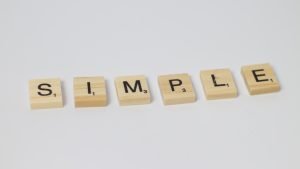This episode is all about the 5 financial habits I’d recommend you implement in your life ASAP.
Transcript
Hello, welcome to another episode of the Minimal Minds Podcast. I am your host, my name is Alex, and today we’re going to be talking about five of the healthiest and most timeless financial habits that you can have. Considering we’re in a cost-of-living crisis situation, especially here in the UK, it has never been more important to make sure you are financially literate.
Times are getting harder and there are so many people out there struggling needlessly because they don’t understand the basics of what it means to be financially healthy. So, healthy habit number one is spend less than you earn. And it sounds so obvious, but it is shocking how few people follow this rule.
If you spend more money than you earn, the amount of money you have in the bank will go down. You cannot get simpler than that. And why do people spend more money than they earn? Well, generally, I think it’s because people don’t actually track their purchases and what they’re spending their money on. So that leads me to healthy financial habit number two, is to, of course, track your purchases.
Now, considering how easy it is to track your spending, it’s so surprising how few people do that as well. How are you supposed to know where your money is going if you’re not tracking what you’re spending on? And if you’re not tracking it, how are you gonna know if you’re saving any money? I think people find tracking their expenses intimidating because it involves a spreadsheet.
And they also presume that they’ll spend hours and hours each week with a load of receipts just typing away at a spreadsheet. But it’s a lot easier than that and let me tell you what I do. I’ve been tracking my finances since about 2016 ish. I made this spreadsheet from scratch and every year I try and improve it a little bit.And at this point I’m pretty happy with how it’s been working for me. I spend about an average of 5 minutes a week on this spreadsheet. So over a year it’s less than 5 hours of work. And yet, I end up with an entire year’s worth of financial data. So… It’s so worth doing. Now I use Google sheets, but you can use Microsoft Excel or whatever you prefer.
Uh, let me explain how it works. So I have one row for every day of the year, and then I have one column for every type of expense. So, I have a column for my rent, uh, for my food shopping, uh, for public transport, for my hobbies, for takeout food, tax, uh, replacing broken items, gifts I give out, so on. You can make columns for whatever you want, as long as they are consistent things that you spend money on, and one off purchases can just go into like a miscellaneous column.
So I hope you’re with me so far. I hope I haven’t lost you. Rows for dates, columns for things. So at this point, you’re left with a box where you can put in the cost of what you’ve spent on any category on any day. Now at the end of the month, you enter two new rows. And on the first row, you’re going to enter a rule that tallies up every number in that column for that month.
And then on that second row, you’re going to enter a rule that tallies up all of your monthly total rows. Now that sounds a bit confusing but what you’re left with is a row that shows you your monthly totals for every category and then a row that shows you your yearly total for each category at that specific point in time.
So when you do this your spreadsheet is going to look really big but the reason I do it this way is that it’s so obvious where everything is supposed to go and you don’t have to tally anything up because all your purchases are entered in individually and because of those rules that we made. The spreadsheet does all the work for you. Now if making your own spreadsheet like this seems a little overwhelming I’ve left my template for you in the show notes that you can download and make your own completely free I’m, not asking for any money, but you’re welcome to donate. But yeah, hopefully saves you some time Just download it and put in whatever you want into the columns.
My third financial habit that I live by is to assess an item’s real cost. What do I mean by that? Well Everything you ever buy has a cost beyond its initial purchase price. Things also have a cost to your time and your peace of mind, and a lot of the time, the thing you’re considering buying that is financially cheap will need to be replaced sooner, so you’ll have to buy it again and spend your valuable time doing so.
Don’t be a bargain demon, looking for deals is all well and good, but don’t take it too far. If you spend three hours looking for ways to save £10 on your purchase, you’re valuing your time at just over £3 an hour. People actually do this and think they are financial geniuses. Please stop doing this, I’m begging you. Your time is worth more than £3 an hour.
Number four on the list of healthy financial habits is to buy consumables in bulk, if you can. Now, in general, the more of something you buy, the cheaper each individual item will become. So, for things that you are guaranteed to go through, like dry foods or kitchen supplies or whatever, buy as much of it as you reasonably can afford.
And as an added bonus, you’re not just saving money in the long run, but you’re also saving your time because you’re spending less time in the shop buying things. If you buy a year’s worth of, I don’t know, beans in one go, imagine the amount of time you’ll save throughout the entire year picking out a can of beans from the supermarket. It all adds up.
And my final recommendation for healthy financial habits is a big one. It’s to invest. Invest, invest, invest. Please, please invest. Now, I don’t mean specifically investing in the stock market, and that’s what people presume when they say invest. Because if your financial net worth is And that is the amount of money you have overall.
If that’s not high enough, then you won’t see enough returns for it to be worth it. So, let me explain. Let’s say you have a net worth of £5000, and you invest £1000, so 20% of that, into the stock market for one year, and you get a pretty respectable return of 5% on your investment. Now, that’s a normal amount, but that’s literally just £50.
And that’s nice to have, but £50 return over an entire year, in my opinion, isn’t really worth it. So instead of spending 20% of your net worth to get £50 back over an entire year, you’re better off at this point investing as much as you can into yourself by buying courses and books and learning knowledge and new skills, which will enable you to bring in more money at a faster rate.
So then after a few years when you’re able to massively increase your net worth because of the skills you managed to build up, then you want to start investing in the stock market, which has lower risk, but you want to do it with more money. So overall, your returns after, let’s say, like, I don’t know, 30 years will be much higher than if you continue to invest small amounts from the beginning and you hadn’t invested that money into building your skill set.
And the amazing thing is, Pretty much everything on the internet is already free. Like, I don’t think there’s anything you can’t learn on the internet, or on YouTube, for completely free. And you can go on Udemy and get courses for like 15, £20. Books are only like £10. All you need to do is just spend your time on it, really.
Invest in your time and your money on yourself. Especially when you’re young, especially when you’re in your 20s, or even younger. Is the absolute best thing you can do long term. So yeah, hope that all makes sense. In summary, healthy habit number one is spend less than you earn. Habit number two is track your purchases. And remember, like I said, if you want that spreadsheet, just click on that link in the show notes and you can get it for free. Healthy habit number three is to assess an item’s real cost, so not just financially, but in terms of peace of mind and your time. Healthy financial habit number four is to buy your consumables in bulk, if you can. And healthy financial habit number five, the best, the most important, is to invest. Invest, invest, invest. Because if you leave your money in the bank, then the value is just going to go down with inflation. And nobody wants that, so invest in the stock market, invest in yourself, and you will make money in the future.
I hope you gained value from this episode today, and if you’d like my ebook titled The Self Development Starter Guide, you can get it for free by signing up to my self development newsletter at theminimalminds. com, and if you want to support the show, check the link in the description. Thank you so much for listening, and I will see you in the next one.




